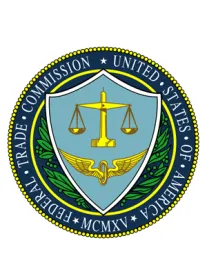The Federal Trade Commission (FTC) continues to aggressively enforce the antitrust laws. On April 27, 2016, the FTC took action against Victrex, plc and its wholly owned subsidiaries, Invibio, Inc. and Invibio Limited (collectively, Invibio) because of exclusivity terms in its supply contracts. The consent order requires Invibio to cease and desist from enforcing most of the exclusivity terms in its current supply contracts and generally prohibits Invibio from requiring exclusivity in future contracts. Invibio is also prohibited from using other pricing strategies, such as market-share discounts, that would effectively result in exclusivity.
Exclusive dealing by a monopolist may be challenged and prohibited when the acts allow the monopolist to maintain its monopoly power. Total foreclosure is not a requirement for unlawful exclusive dealing—it simply must foreclose competition in a substantial share of the relevant market so as to adversely affect competition.
The FTC’s complaint alleged that Invibio’s exclusive dealing provisions in its customer contracts foreclosed a substantial share of the market from two entrants despite those entrants offering a similar product at lower prices. In addition to using exclusivity terms in its long term supply contracts to impede its competition and maintain its monopoly power in the worldwide market for implant-grade polyetheretherketone (PEEK), the FTC complaint also alleged that Invibio used strategies to “coerce or induce device makers to accede to exclusivity terms, including threatening to discontinue PEEK supply or to withhold access to regulatory support.”
PEEK is a specialty polymer used by medical device makers to construct spinal, orthopedic and other human implants. There are only two competitors to Invibio in the sale of implant-grade PEEK, and both companies entered the market after Invibio, “offering prices significantly below the prices charged by Invibio.” Despite facing competition from two competitors offering lower-priced product, Invibio has maintained more than 90 percent of worldwide sales for implant-grade PEEK.
Medical devices that use PEEK must be approved by the US Food and Drug Administration (FDA). Device makers were forced to sign an exclusive contract with Invibio because the regulatory process with the FDA for use of a new source of PEEK in medical devices takes time. Some PEEK purchasers tried to negotiate contracts without exclusivity terms, but Invibio threatened to withhold access to new brands of its product or Invibio’s FDA master file, if a customer declined to purchase exclusively from Invibio. In addition, and when necessary, Invibio offered a small price discount (minor inducement) or some other benefit in exchange for exclusivity.
The exclusivity terms required customers to use Invibio’s product for all PEEK-containing medical devices and were tightened and expanded upon the competitors’ entry. The FTC alleged the goal of these provisions was to prevent those competitors from gaining reputation and experience to become effective rivals. While the exclusivity terms varied considerably from customer to customer, in the FTC’s view, foreclosure was substantial—the customers could not source substantial volumes of PEEK from Invibio’s competitors.
While the FTC’s case against Invibio resulted in a settlement and not a finding of liability, companies with large shares should still take care when bargaining with customers about exclusivity terms in contracts, particularly when those exclusivity terms are introduced in response to entry by new competitors. Exclusivity terms that arguably have the effect of harming competition may raise antitrust concerns.



 />i
/>i

